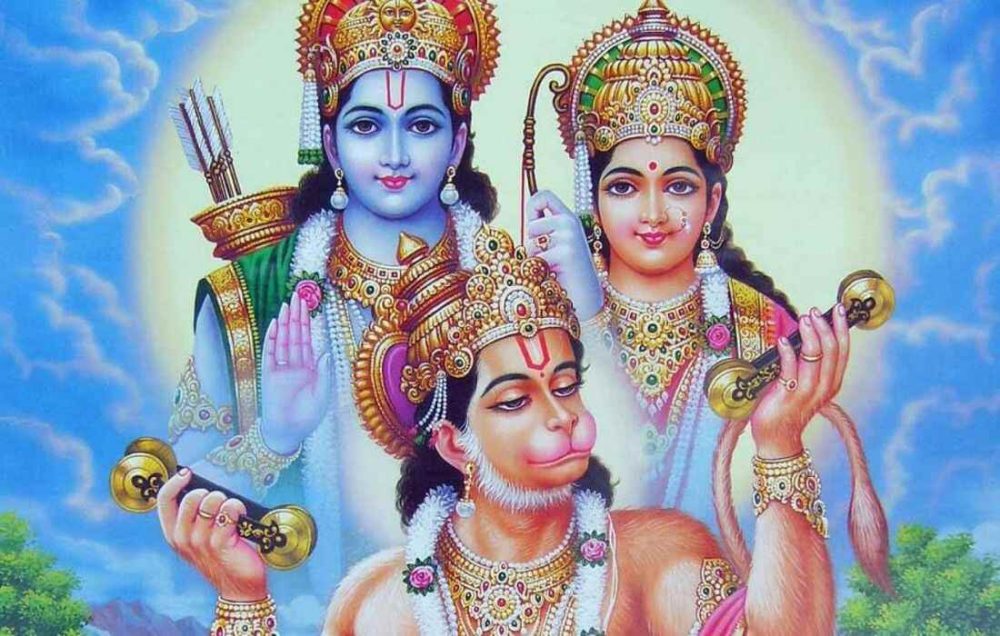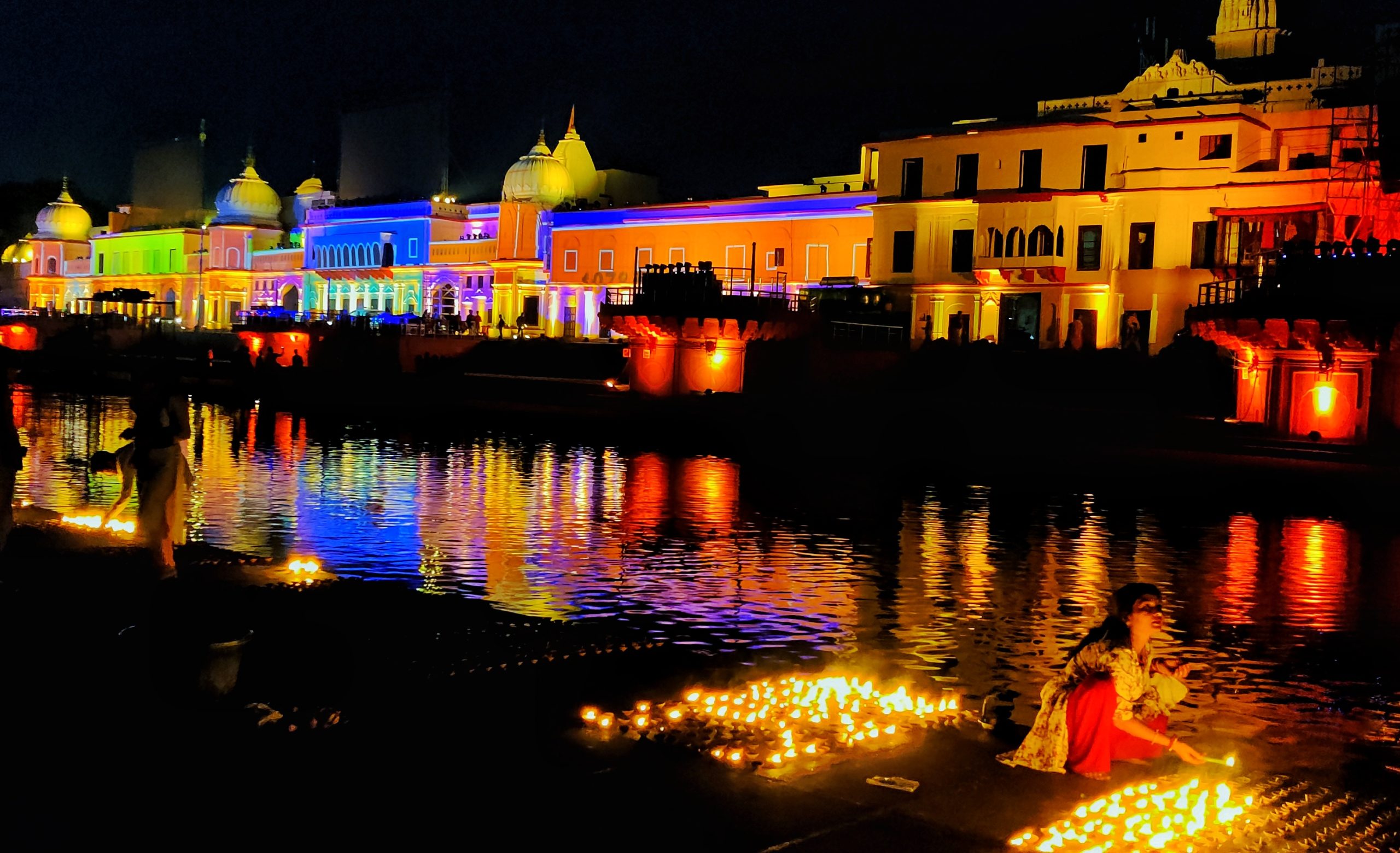
Rama Bhakti, or devotion to Lord Rama, holds a special position in Hinduism and epitomises morality, devotion, and spiritual advancement. Lord Rama, venerated as Lord Vishnu‘s seventh avatar, represents morality, honesty, and compassion. Millions of followers look to the epic narrative of Ramayana, which describes Rama’s life, teachings, and brave deeds, as a timeless text and a guiding light.
The adoration of Rama’s admirable qualities is at the core of Rama Bhakti. His unrelenting dedication to maintaining dharma, or righteousness, exemplifies the moral ideals that followers strive to imitate.
Lord Rama is a perennial representation of justice and an example of living a moral life because of the narrative of his compassion, honesty, and selflessness. Devotees can show their Love and devotion to Lord Rama through different rituals, including chanting his name, performing devotional songs, and making pilgrimages to holy sites connected to his life.
Rama Bhakti provides a deep connection with the divine, enabling followers to let go of earthly attachments and advance spiritually.Rama Bhakti also acts as a global way that cuts through barriers of gender, caste, and creed.
The Ramayana principles and Lord Rama’s teachings are universally appealing and encourage Love, compassion, righteousness, and respect for all living things. In essence, Rama Bhakti represents the core values of Hinduism—righteousness, leadership, devotion, and spiritual freedom. The following significant factors show the relevance of Rama Bhakti in Hinduism:
Exemplary Personality

Lord Rama is portrayed as the epitome of morality, virtue, and dharma (obligation). Compassion, honesty, integrity, altruism, and unswerving adherence to the truth are traits that perfectly describe his character.
Devotees aim to imitate his values and look to his life narrative for motivation to live a good and moral life.
Rama’s distinguishing qualities are his unyielding dedication to dharma or duty. He serves as an example of the worth of upholding moral principles and carrying out one’s obligations. Rama continually demonstrates the values of dharma in every part of his life, whether as a devout son, a submissive husband, or a righteous king.
The ideal monarch and ruler
Rama, also known as “Maryada Purushottam,” is regarded as the ultimate monarch and leader. He ensured the well-being and pleasure of his subjects while governing the kingdom of Ayodhya with the utmost fairness and justice.
His followers look forward to him as a role model for leadership and ethical leadership since his reign stands for the ideal government built on dharma and morality.
Rama built a just and peaceful government in Ayodhya throughout his rule, prioritising the welfare of his subjects. He ensured fairness and dharma-based ideals were upheld, and justice was served.
Leaders from all eras are inspired by Rama’s dedication to maintaining dharma in his position as a king.
Divine devotion and Love

Rama Bhakti exemplifies Deep Love and devotion for Lord Rama. Rama’s name is chanted, prayers and hymns are recited in his honour, devotional songs (bhajans) are sung, fasts are observed, and pilgrimages are made to holy sites where Lord Rama is revered, including Ayodhya, Rameswaram, and Sitamarhi.
Such devotional actions enable people to have a personal relationship with the divine and experience spiritual development. Rama’s name chanting, or “nama japa,” is a popular devotional practice in which followers continually pronounce the holy name to connect with the spiritual force Rama represents.
The way to liberation
One of the most effective ways to achieve spiritual emancipation (moksha) is through Rama bhakti. Devotees of Lord Rama strive to transcend earthly attachments and unite their awareness with the divine via everlasting devotion to him.
They think they may achieve spiritual freedom and eternal joy by giving up their ego and committing their thoughts, deeds, and emotions to Rama.
Devotees understand that genuine liberation comes from separating from the false realities of the physical world and shifting their attention to the everlasting and transcendent realm embodied by Lord Rama.
Unification and Appeal to All
Rama Bhakti promotes inclusivity and togetherness by bridging caste, creed, and gender barriers. Hindus of all sects and traditions revere Lord Rama, and individuals from all walks of life can relate to his narrative.
Rama’s teachings and the principles presented in the Ramayana are timeless and advocate for righteousness, Love, and respect for all living things.
Hindus from many forms of devotion, including Vaishnavism, Shaivism, and Shaktism, have tremendous reverence for Lord Rama regardless of their sectarian connections or geographical differences. The Ramayana’s portrayal of Rama’s persona and his journey contains everlasting morals and teachings.
Conclusion
Rama Bhakti has profound and complex importance in Hinduism. The principles of righteousness, leadership, devotion, and spiritual freedom are all part of Lord Rama’s worship. Lord Rama’s character motivates Hindus to live decent lives and preserve moral principles. Rama Bhakti provides a route to spiritual emancipation and celebrates Rama’s merits.
Devotees of Rama aim to transcend earthly attachments and unite their awareness with the divine by sacrificing their ego and committing themselves to Rama. This devotion fosters spiritual development and inner tranquillity while offering a deep connection to the divine.
Rama Bhakti also encourages inclusivity and harmony. Devotees from many backgrounds gather together in their adoration for Lord Rama regardless of caste, race, or gender. Rama’s teachings and the universal principles shown in the Ramayana encourage Love, compassion, and respect for all living things, which supports the notion of a peaceful society.
Ultimately, Rama Bhakti plays a significant role in Hinduism, influencing millions of people’s hearts with Love, devotion, and moral principles. It lights the way to enlightenment, selflessness, and union with the divine as the ultimate aim. Because of its ageless lessons, Rama Bhakti continues to be an essential thread in the complex fabric of Hindu philosophy and spirituality.



